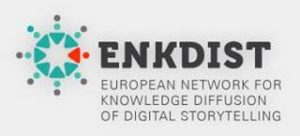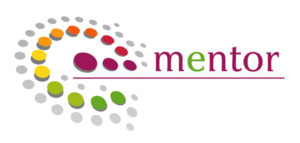ENKDIST
The Network meets the purposes of the Life Long Learning program with the intention of exchanging best practice at an European level, endorsing the vision of technology serving lifelong learning. Specifically the project wants to address the ICT’ s contribution considering the digital story telling as a mean of Lifelong Learning.
| Project title: | European Network for Knowledge Diffusion of DIgital StoryTelling |
| Project No. | 518967-LLP-1-2011-1-IT-KA3-KA3NW |
| Project web page: | http://www.dtellers.eu |
| Project coordinator: | Luigi Sturzo institute, Italy (http://www.sturzo.it/) |
| Contact person at VDU: | Doc. Dr. Airina Volungevičienė airina.volungeviciene@vdu.lt |
| Project run: | 36 months (11/2011 – 10/2014) |
Project partners:
- Vytautas Magnus University Innovative Studies Institute, Lithuania (www.vdu.lt)
- Perspectives, Belgium (http://www.performat.be)
- National and Kapodistrian University, Greece (http://www.en.uoa.gr)
- AcrossLimits, Malta (http://www.acrosslimits.com)
- Storyteller Museum, Poland (http://www.mubabao.pl)
- Wyższa Szkoła Biznesu i Nauk o Zdrowiu, Poland (http://www.medyk.edu.pl)
- Yale College Centre for Digital Storytelling, United Kingdom (http://www.yale-wrexham.ac.uk)
- Center for Digital Storytelling, United States of America (http://www.storycenter.org)
The project has the aim to transform and integrate national practice into a European procedure.This consist in the valorisation, through the network, of digital storytelling as methodology to endorse in education in all the life cycle, respecting at the same time local identities: here relies the creation of a virtual community of practice on Digital Story Telling issues, able to propose an European framework to follow.
The term “community of practice” has turned out to provide a useful perspective on knowing and learning, as a key to improving its performance. A community of practice is not merely a community of interest. Members of a community of practice develop a shared repertoire of resources: experiences, stories, tools, ways of addressing recurring problems—in short a shared practice. It is “virtual” because the major meeting place – where to share knowledge, exchange of good practices and develop new strategic partnerships on Digital Storytelling – will be in this platform.
The Network will also provide advice and support on transversal issues related to the creative use of digital content and to the employment of basic software tools to create a digital stories.
To reach these objectives the Network will connect knowledge, experiences and best practices between the 8 European partners (plus one american partner), during a series of 3-years events (seminars and workshops) in which DST approach, tools and related issues will be analyzed, deepened, critically compared, updated through contributes from international experts and practically tested involving transversal targets of the educational and learning sector, from pupils to teachers, from students to professors, from professionals to trainers and adults in organisational dynamics.
The relevance of the proposed network lies in the idea that new media require not only skills as users, but also as producers of contents. To enable people of all ages to use digital tools and DST practice is a way to connect them to the highest needs of Maslow’s hierarchy – esteem & self actualization -, the common basis of any learning sectors.
OLAREX
The main goal of the project is to innovatively implement ICT-based learning materials, remote experiments, and e-didactic methods into formal and non-formal lifelong learning settings. It will enhance and modernize science, technology, engineering and mathematics (STEM) curricula, foster student creativity and motivation, and develop professional skills and insights about the impact of evolving technologies.
| Project title: | OLAREX: Open Learning Approach with Remote Experiments |
| Project No. | 518987-LLP-1-2011-1-ES-KA3-KA3MP |
| Project web page: | http://www.olarex.eu |
| Project coordinator: | University Deusto, Spain (http://www.deusto.es/) |
| Contact person at VDU: | Doc. Dr. Airina Volungevičienė, airina.volungeviciene@vdu.lt |
| Project run: | 24 months (11/01/2011 – 10/31/2013) |
Project partners:
- Vytautas Magnus University (LT)
- P. Andrés Urdaneta School (ES) (http://www.colegiourdaneta.com/web/colegio-urdaneta/home)
- Europa Media Non-Profit Ltd (HU) (http://www.europamedia.org/)
- Carinthia University of Applied Sciences (AT) (http://www.fh-kaernten.at/en.html)
- BG/BRG Peraustrasse (AT) (http://www.peraugym.at/)
- National Polytechnic Museum (BG) (http://www.polytechnicmuseum.org/index.php?option=com_datsogallery&Itemi…)
- Radomska Szkoła Wyższa (PL) (http://rsw.edu.pl/)
The organized training courses for teachers, future authors of learning materials and modules, and museum employees will build the e-didactic competences in the STEM by providing remote lab work explanations, offering practically-oriented approaches for strengthening educational programs and technical practices.
e-MENTORING
Fast changing labour market requires the alignment of employment-related skills and competencies to be successful during job search. During the last years mentoring provided by mentors (employers/employees) got more and more common and has proved itself worldwide as an effective learning process.
| Project title | e-MENTORING: New skills and competencies for new jobs (e-MENTOR) |
| Project website | http://www.e-mentoring.eu |
| Project No. | 511579-LLP-1-2010-1-LT-KA3-KA3MP |
| Project coordinator | Social Innovation Fund (LT) |
| Contact person | Liudmila Mecajeva, L.Mecajeva@lpf.lt |
| Contact person at VDU | Prof. Margarita Teresevičienė, margarita.tereseviciene@vdu.lt |
| Project run | 01/01/2011 – 30/06/2013 |
Project partners:
- Vytautas Magnus University (LT)
- Merseyside Expanding Horizons Ltd. (UK)
- ANNANET: Pertti Vihonen Oy (FI)
- Volkshochschule Göttingen e.V. (DE)
- Speha Fresia Societa Cooperativa (IT)
- European Partnership (LT)
- Burgas Free University (BG)
- VentureQuest Ltd. LLC (USA)
Project goals
Collecting good practice experiences and transferring best solutions into a common e-mentoring model the transnational EU-project e-Mentoring aims to increase the capacities of students in High Education, trainees in Vocational Education and Training institutions and adults re-/entering the labour market. To enhance the e-mentoring process Open Educational Resources for self-directed learning are integrated and will provide best conditions to the target group.
As there are so many different ways and experiences in the mentoring field collected from the different project partner countries, it also seems useful to make accessible the knowledge to the three main actors (managers, mentors, mentees). So self-training e-learning courses for these actors within the project are developed and openly published with Web 2.0 tools to cover common learning needs on e-Mentoring management. The aim is to create an e-learning platform for e-Mentoring with e-Guidebook.
With partners from Lithuania, United Kingdom, Finland, Italy, Bulgaria, United States and Germany e-Mentoring project started in January 2011 with duration of three years.
Project results: Newsletter1, Leaflet














